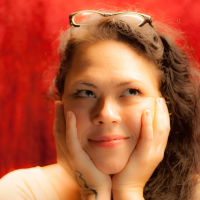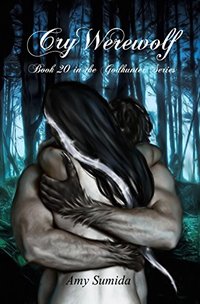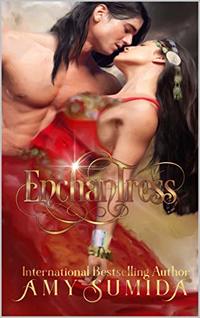Amy Sumida Interview Published on: 21, Feb 2018
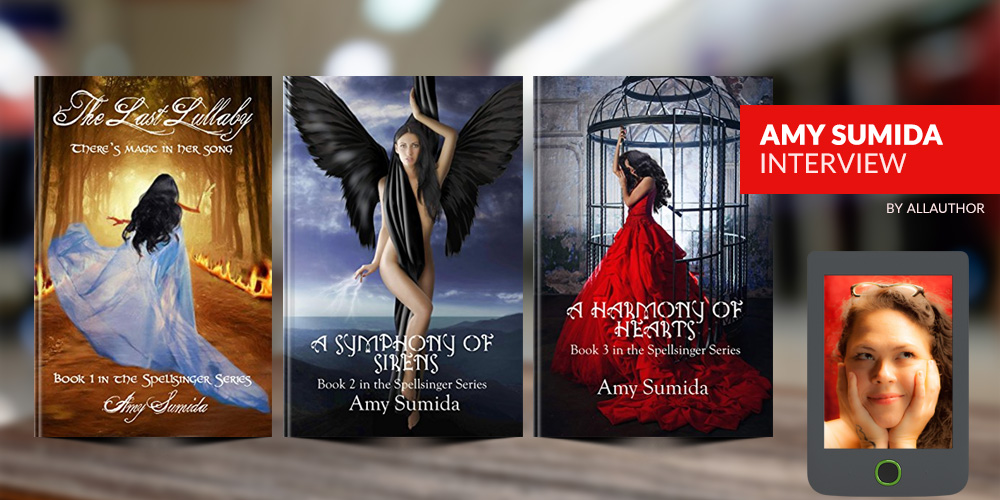 Tell us a little bit about your hometown and your life growing up. What were some of your aims and aspirations as a kid and how did those change as your grew up?
Tell us a little bit about your hometown and your life growing up. What were some of your aims and aspirations as a kid and how did those change as your grew up?
I was born and raised in Hawaii. It's a beautiful place to live, full of inspiration, and I've used that inspiration to write from a very young age. I remember getting into trouble once in Elementary School for telling tall tales to the other kids. By the time I got to High School, I was writing full novels. I gave half of a manuscript to my English teacher one year and a few weeks later, I was stopped in the hallway by another teacher, demanding that I finish the book because she had to know the ending. My English teacher had shared my book with her friend. That was the moment when I thought I might be able to make a career out of my imagination.
What were your parents' initial reactions when you said you wanted to be an author? What are their thoughts about your career and your writing now?My father died when I was 11, so he never saw me become an author, but my mother has always encouraged me. When I first published on Amazon, I was thrilled to get 20 sales, and she celebrated with me. These days she's blown away by my success, and over the moon with joy for me. She's a good mommy.
How did you first get into the paranormal and erotic romance genre? What are some common misconceptions about the genre that you hope to erase?I began a love for Paranormal Romance with a book given to me by my English teacher. I used to read in her class, and the other kids would complain. She'd tell them that reading is important, and if they could read a book while she taught and still get As on their test like I did, then they could do the same. She was very supportive of me, and lent me her copy of Anne Rice's The Vampire Lestat. Now, that's not exactly Paranormal Romance, but it started my love affair with unusual men, and inspired me to write in the genre. As far as misconceptions go; when I first started writing, Paranormal Romance was all vampires and werewolves. I wanted to write something different; it's para-normal—beyond the norm—and that includes all kinds of things. These days, though, it's become an accepted thing that PNR is far more than vampires and werewolves.
What kinds of scenes do you find harder to write (action, suspense, funny, etc)?The hardest scenes for me to write are action scenes. Mainly because I'm an author; I sit in a chair all day and the most exercise I get is when I walk up my stairs to get lunch. But that's what being creative is about, so I just try to picture what I would do if I were a kick-ass heroine, and I hope it works. But then when readers tell me how much they liked my action scenes, I'm doubly flattered since they were so difficult for me to write.
How is your day structured? How many days do you write in a week?I work every day. During the week, I treat my writing as any other type of work; I get up, have breakfast, go to my office, and write. I don't set an amount of time to write, but instead an amount of pages. After my first draft is finished, I have another set amount of pages to edit daily. After I reach my goal, I stop. That may take me till 10 PM or till lunchtime; it just depends on my level of inspiration. But either way, I reach my goal. During the weekend, I'm a little more flexible with myself. I write if I want to; and generally, I want to. I'm lucky to be doing what I love, and that means I end up working all the time.
Walk us through the editing process of your book? Who normally edits your books for you?My editing process involves several people. I edit as best I can, then I send it to a friend and get anything he catches, and finally, it goes to my editor. We all miss stuff, so I've made a game out of it. At the end of my books you can find a section called Grammar Giggles. Whenever I find a mistake that turns out to be humorous, I put it there. You'd be surprised how many times the wrong/misspelled word can make a sentence hilarious.
How did you get the idea for the Godhunter series? What are these books about?The Godhunter Series is about a witch who discovers that the gods are real, but they're not really gods; they're survivors of Atlantis. They've used their magic and advanced science to make humans believe they were gods, and then used human sacrifice to fuel their magic and prolong their lives. As humanity stopped believing in gods, they needed to find new ways to acquire human sacrifice, so they began manipulating governments into wars and scooping up the fallen soldiers as sacrifices. My main character, Vervain, begins to hunt the gods to save mankind from their manipulations. As for how I came up with the idea; I used to study religions. I believe that one of the best ways to learn about a culture is to study their gods. In their myths, you'll find hints to what was important to these people. Then I thought to myself "What would these gods be like if they were real? How would they interact with humanity? And how would our fading interest affect them? Godhunter was born.
Which characters did you enjoy creating the most in the Godhunter series? What are some common myths or legends that you incorporated into these books?I have a thing for broken people and bad guys. So, one of my favorite characters to create (in the first book) was Huitzilopochtli (AKA Blue) who is an Aztec God of the Sun and War. In his myths, Huitzilopochtli becomes so inflamed when he goes to war, that the only thing that can quench his heat is blood. He has to drench himself in blood to cool down. Well, if that doesn't scream vampire, I don't know what does. So, I made him the father of vampires. All of the supernatural critters have a god source in my books. The werewolves, for instance, are children of Fenrir, the Viking Wolf God. Speaking of werewolves, I also enjoyed creating Trevor—son of Fenrir. He was a character who I thought was going to have a minor role and ended up becoming important.
What inspired the Twilight Court series?Twilight Court came about from my desire to create a new twist on fairies while still remaining true to the old legends about them. I wanted a tough female lead (I love my kick-ass heroines) and I wanted her to be different from my heroine in Godhunter. Vervain—all of her character traits and quirks—is me. She's very easy for me to write because of this. But I wanted a challenge. I wanted a character who begins as a warrior and softens along the way. Then I came up with the notion of adding another court to the traditional Seelie and Unseelie Fairy Courts. If Seelie represents the Day, and Unseelie the Night, then it made perfect sense to create a court in between them; one that represented the Twilight. I know the word is reminiscent of a certain popular series, but the Dawn Court just didn't sound as good, and I try not to let Pop Culture influence my decisions.
Who was the character Seren Sloane based off of? What are some uncommon themes you explore in these books? What makes them worth reading?Seren Sloane isn't based off of anyone; she's straight from my imagination. I'm a big fan of triumph through adversity, and that's a common theme in many books, but it's the types of adversity that Seren faces that makes these books unique and worthwhile. She loses her way of life and people who were very important to her. Seren must shift her perspectives and her the basic concepts with which she views the world. Through her transitions, I hope to take other people into a broader way of looking at things, and open up new paths for my readers.
What is a Spellsinger? How many books are in the Spellsinger series and which ones were the hardest and easiest to write?A Spellsinger is a child of a witch and a siren. The union produces offspring that have the ability to sing spells; making magic happen through music. So far, there are 4 books in the series. The first one had been rolling around in my head for years and was the easiest to write. The rest of them were more difficult. I like to have scenes set before I start writing, but with these books, I've found that I just have to start typing and let the story come naturally.
What fairytales did you reimagine in "Happily Harem After"? A lot of well known fairytales actually have very dark backstories. Were any of your tales based on the actual original stories?Happily Harem After was a gift to my Reverse Harem fans. I never started out to write in this genre, I write the story as it comes. But then I was told that I was an RH writer. "What's that?" I asked. "You write it," they said. "It's romance involving one woman and more than two men." This is a new genre and there are a lot of misconceptions about it. Some people think it's straight up erotica, and it's not. Reverse Harem is about strong women who don't settle, and most importantly, it's about romance. Did you hate when Bella had to choose between Edward and Jake? Well, in RH, she wouldn't have to. I began writing it because you have to keep things interesting in a romance series and there are two ways to do that; you can either kill off the main guy and start fresh, or you can add another man. I hate killing characters, so I opted for number 2. Happily Harem After was born of my desire to remake fairy tales and to make my RH readers happy. Lots of people have remade fairy tales, but no one (at that time) had remade them in this genre. I seem to have started something, though, because now there are quite a few. The fairy tales I've done so far, are The Four Clever Brothers (a less known tale about four brothers saving a princess from a dragon), Beauty and the Beast, Cinderella, Snow White, Peter Pan, Goldilocks, Alice in Wonderland, and Sleeping Beauty. The first volume of Happily Harem After has The Four Clever Brothers, Beauty and the Beasts, The Little Glass Slipper (Cinderella), Pan's Promise (Peter Pan), and Wild Wonderland (Alice in Wonderland. I intend to release another volume with Codename:Goldilocks, White as Snow (Snow White), Sea Legs (The Little Mermaid), and Twisted (Wizard of Oz). Yes, some of the old fairy tales get dark, but I just used them as inspiration and tried to make them new and fresh.
What does writing mean to you? Who are some of your favourite fantasy and paranormal romance authors?Writing is a way of life. It's hard for me to go a day without writing. It's a way to vent all the craziness in my head. Some of my favorite writers are Terry Pratchett, Neil Gaiman, JR Ward, Mary Janice Davidson, and Kim Harrison.
What is an interesting writing quirk that you have? What is the hardest thing about being an author?A quirk... hmmm... I act as if the characters are real and function independently. I'm often surprised by things they do or say. For example; I'll call up my best friend and say "You won't believe what Trevor did today!" And he'll point out that Trevor is not real; that I made him up and I'm the one making him say or do those things. It's not true; Trevor is real! Speaking of which, the hardest part about being an author is getting back into reality.
Share Amy Sumida's interview
Author Amy Sumida was born and raised in Hawaii and was writing full novels by the time she was in high school. Her father died when she was 11, but her mother has always encouraged her. Her love for Paranormal Romance began with a book given to her by her English teacher. Amy works every day and treats her writing as any other type of work. Being a big fan of triumph through adversity, many of her books carry this common theme. Writing is a way of life for her and a way for Amy “to vent all the craziness in my head.” Some of her favorite writers are Terry Pratchett, Neil Gaiman, JR Ward, Mary Janice Davidson, and Kim Harrison. Often lost in the worlds she creates, Amy finds the hardest part about being an author is getting back into reality.
 The Last Lullaby (The Spellsinger Book 1)
Genre: New Adult Romance, Paranormal Romance, Romance, Women's Fiction, Fantasy
The Last Lullaby (The Spellsinger Book 1)
Genre: New Adult Romance, Paranormal Romance, Romance, Women's Fiction, Fantasy
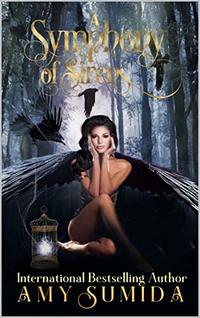 A Symphony of Sirens: Book 2 in the Spellsinger Series
Genre: New Adult Romance, Paranormal Romance, Romance, Women's Fiction, Fantasy, Teen & Young Adult
A Symphony of Sirens: Book 2 in the Spellsinger Series
Genre: New Adult Romance, Paranormal Romance, Romance, Women's Fiction, Fantasy, Teen & Young Adult
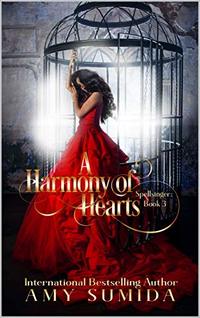 A Harmony of Hearts: Book 3 in the Spellsinger Series
Genre: New Adult Romance, Paranormal Romance, Romance, Erotic Romance, Fantasy, Teen & Young Adult
A Harmony of Hearts: Book 3 in the Spellsinger Series
Genre: New Adult Romance, Paranormal Romance, Romance, Erotic Romance, Fantasy, Teen & Young Adult
 Fairy-Struck: Book 1 in the Twilight Court Series
Genre: New Adult Romance, Paranormal Romance, Romance, Fantasy
Fairy-Struck: Book 1 in the Twilight Court Series
Genre: New Adult Romance, Paranormal Romance, Romance, Fantasy
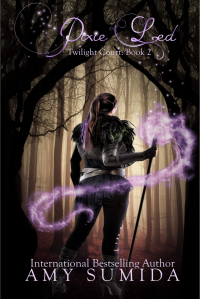 Pixie-Led : Book 2 in the Twilight Court Series
Genre: New Adult Romance, Paranormal Romance, Romance, Fantasy
Pixie-Led : Book 2 in the Twilight Court Series
Genre: New Adult Romance, Paranormal Romance, Romance, Fantasy
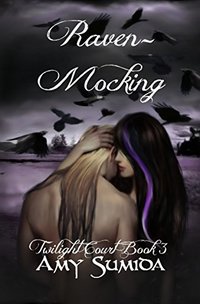 Raven-Mocking (Book 3 in the Twilight Court Series)
Genre: New Adult Romance, Paranormal Romance, Romance, Fantasy
Raven-Mocking (Book 3 in the Twilight Court Series)
Genre: New Adult Romance, Paranormal Romance, Romance, Fantasy
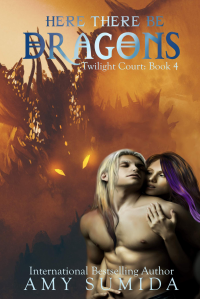 Here There be Dragons : Book 4 in the Twilight Court Series
Genre: New Adult Romance, Paranormal Romance, Romance, Fantasy
Here There be Dragons : Book 4 in the Twilight Court Series
Genre: New Adult Romance, Paranormal Romance, Romance, Fantasy
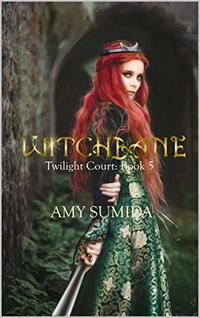 Witchbane: Book 5 in The Twilight Court Series
Genre: New Adult Romance, Paranormal Romance, Romance, Fantasy
Witchbane: Book 5 in The Twilight Court Series
Genre: New Adult Romance, Paranormal Romance, Romance, Fantasy
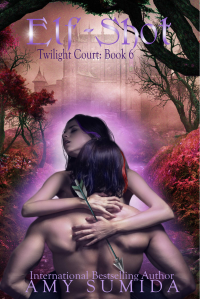 Elf-Shot (Book 6 in The Twilight Court Series)
Genre: New Adult Romance, Paranormal Romance, Romance, Fantasy
Elf-Shot (Book 6 in The Twilight Court Series)
Genre: New Adult Romance, Paranormal Romance, Romance, Fantasy
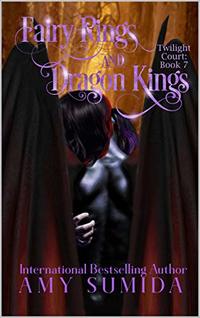 Fairy Rings and Dragon Kings (Book 7 in the Twilight Court Series)
Genre: New Adult Romance, Paranormal Romance, Romance, Fantasy
Fairy Rings and Dragon Kings (Book 7 in the Twilight Court Series)
Genre: New Adult Romance, Paranormal Romance, Romance, Fantasy
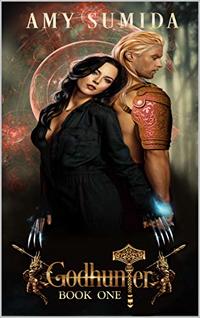 Godhunter (The Godhunter Book 1)
Genre: New Adult Romance, Paranormal Romance, Romance, Women's Fiction, Fantasy
Godhunter (The Godhunter Book 1)
Genre: New Adult Romance, Paranormal Romance, Romance, Women's Fiction, Fantasy
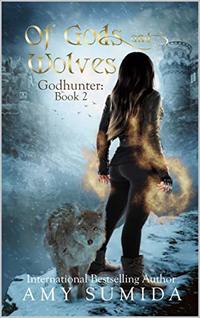 Of Gods and Wolves : Book 2 in The Godhunter Series
Genre: New Adult Romance, Paranormal Romance, Romance, Fantasy
Of Gods and Wolves : Book 2 in The Godhunter Series
Genre: New Adult Romance, Paranormal Romance, Romance, Fantasy
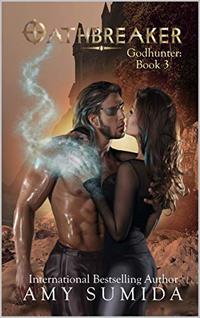 Oathbreaker: Book 3 in the Godhunter Series
Genre: New Adult Romance, Paranormal Romance, Romance, Fantasy
Oathbreaker: Book 3 in the Godhunter Series
Genre: New Adult Romance, Paranormal Romance, Romance, Fantasy
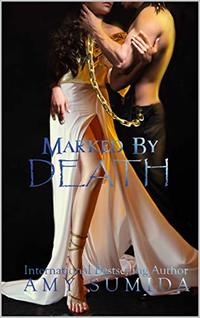 Marked by Death: Book 4 in the Godhunter Series
Genre: New Adult Romance, Paranormal Romance, Romance, Fantasy
Marked by Death: Book 4 in the Godhunter Series
Genre: New Adult Romance, Paranormal Romance, Romance, Fantasy
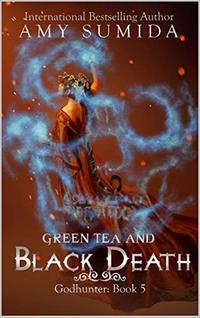 Green Tea and Black Death: Book 5 in The Godhunter Series
Genre: New Adult Romance, Paranormal Romance, Romance, Fantasy
Green Tea and Black Death: Book 5 in The Godhunter Series
Genre: New Adult Romance, Paranormal Romance, Romance, Fantasy
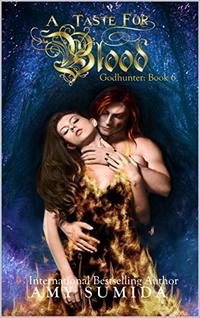 A Taste for Blood: Book 6 in The Godhunter Series
Genre: New Adult Romance, Paranormal Romance, Romance, Fantasy
A Taste for Blood: Book 6 in The Godhunter Series
Genre: New Adult Romance, Paranormal Romance, Romance, Fantasy
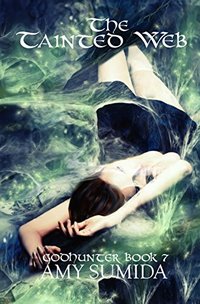 The Tainted Web : Book 7 in The Godhunter Series
Genre: New Adult Romance, Paranormal Romance, Romance, Fantasy
The Tainted Web : Book 7 in The Godhunter Series
Genre: New Adult Romance, Paranormal Romance, Romance, Fantasy
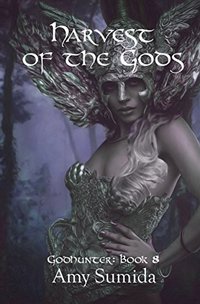 Harvest of the Gods: Book 8 in the Godhunter Series
Genre: New Adult Romance, Paranormal Romance, Romance, Fantasy
Harvest of the Gods: Book 8 in the Godhunter Series
Genre: New Adult Romance, Paranormal Romance, Romance, Fantasy
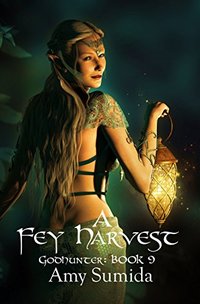 A Fey Harvest: Book 9 in The Godhunter Series
Genre: New Adult Romance, Paranormal Romance, Romance, Fantasy
A Fey Harvest: Book 9 in The Godhunter Series
Genre: New Adult Romance, Paranormal Romance, Romance, Fantasy
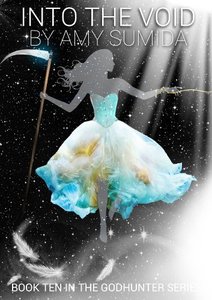 Into the Void (Book 10 in the Godhunter Series)
Genre: New Adult Romance, Paranormal Romance, Romance, Fantasy
Into the Void (Book 10 in the Godhunter Series)
Genre: New Adult Romance, Paranormal Romance, Romance, Fantasy
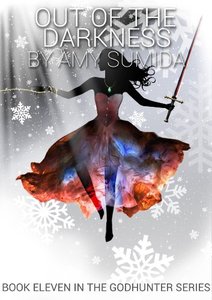 Out of the Darkness (Book 11 in the Godhunter Series)
Genre: New Adult Romance, Paranormal Romance, Romance, Fantasy
Out of the Darkness (Book 11 in the Godhunter Series)
Genre: New Adult Romance, Paranormal Romance, Romance, Fantasy
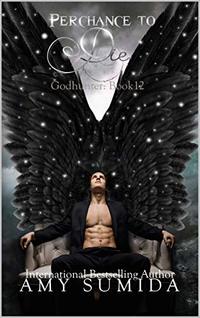 Perchance To Die (Book 12 in The Godhunter Series)
Genre: New Adult Romance, Paranormal Romance, Romance, Fantasy
Perchance To Die (Book 12 in The Godhunter Series)
Genre: New Adult Romance, Paranormal Romance, Romance, Fantasy
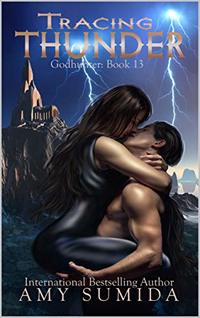 Tracing Thunder (The Godhunter Series Book 13)
Genre: New Adult Romance, Paranormal Romance, Romance, Fantasy
Tracing Thunder (The Godhunter Series Book 13)
Genre: New Adult Romance, Paranormal Romance, Romance, Fantasy
 Light as a Feather (Book 14 in The Godhunter Series)
Genre: New Adult Romance, Paranormal Romance, Romance, Fantasy
Light as a Feather (Book 14 in The Godhunter Series)
Genre: New Adult Romance, Paranormal Romance, Romance, Fantasy
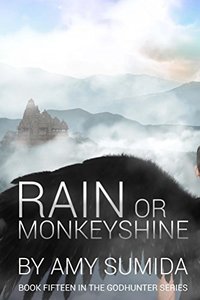 Rain or Monkeyshine (Book 15 in The Godhunter Series)
Genre: New Adult Romance, Paranormal Romance, Romance, Fantasy
Rain or Monkeyshine (Book 15 in The Godhunter Series)
Genre: New Adult Romance, Paranormal Romance, Romance, Fantasy
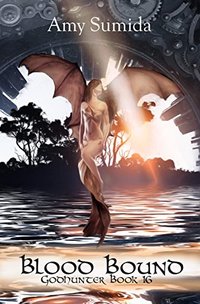 Blood Bound: Book 16 in The Godhunter Series
Genre: New Adult Romance, Paranormal Romance, Romance, Fantasy
Blood Bound: Book 16 in The Godhunter Series
Genre: New Adult Romance, Paranormal Romance, Romance, Fantasy
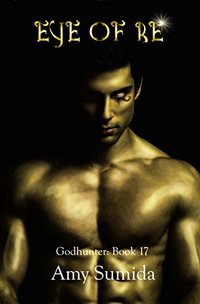 Eye of Re (Book 17 in The Godhunter Series)
Genre: New Adult Romance, Paranormal Romance, Romance, Fantasy
Eye of Re (Book 17 in The Godhunter Series)
Genre: New Adult Romance, Paranormal Romance, Romance, Fantasy
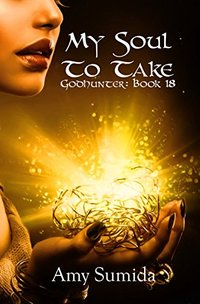 My Soul to Take : Book 18 in the Godhunter Series
Genre: New Adult Romance, Paranormal Romance, Romance, Fantasy
My Soul to Take : Book 18 in the Godhunter Series
Genre: New Adult Romance, Paranormal Romance, Romance, Fantasy
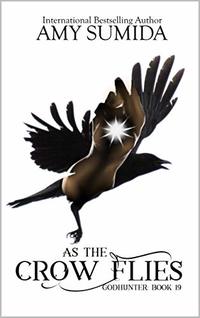 As the Crow Flies (Book 19 in the Godhunter Series)
Genre: New Adult Romance, Paranormal Romance, Romance, Fantasy
As the Crow Flies (Book 19 in the Godhunter Series)
Genre: New Adult Romance, Paranormal Romance, Romance, Fantasy
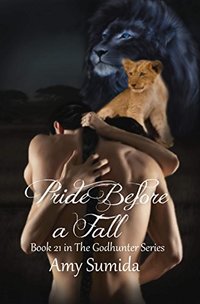 Pride Before A Fall (Book 21 in the Godhunter Series)
Genre: New Adult Romance, Paranormal Romance, Romance, Fantasy
Pride Before A Fall (Book 21 in the Godhunter Series)
Genre: New Adult Romance, Paranormal Romance, Romance, Fantasy
 Monsoons and Monsters: Godhunter Book 22
Genre: New Adult Romance, Paranormal Romance, Romance, Erotic Romance, Fantasy
Monsoons and Monsters: Godhunter Book 22
Genre: New Adult Romance, Paranormal Romance, Romance, Erotic Romance, Fantasy
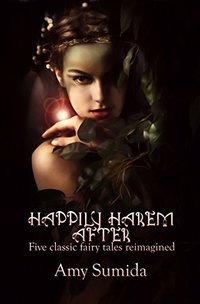 Happily Harem After: Five Classic Fairy Tales Reimagined
Genre: New Adult Romance, Paranormal Romance, Romance, Erotic Romance, Dark Romance & Erotica, Fantasy, Teen & Young Adult
Happily Harem After: Five Classic Fairy Tales Reimagined
Genre: New Adult Romance, Paranormal Romance, Romance, Erotic Romance, Dark Romance & Erotica, Fantasy, Teen & Young Adult
